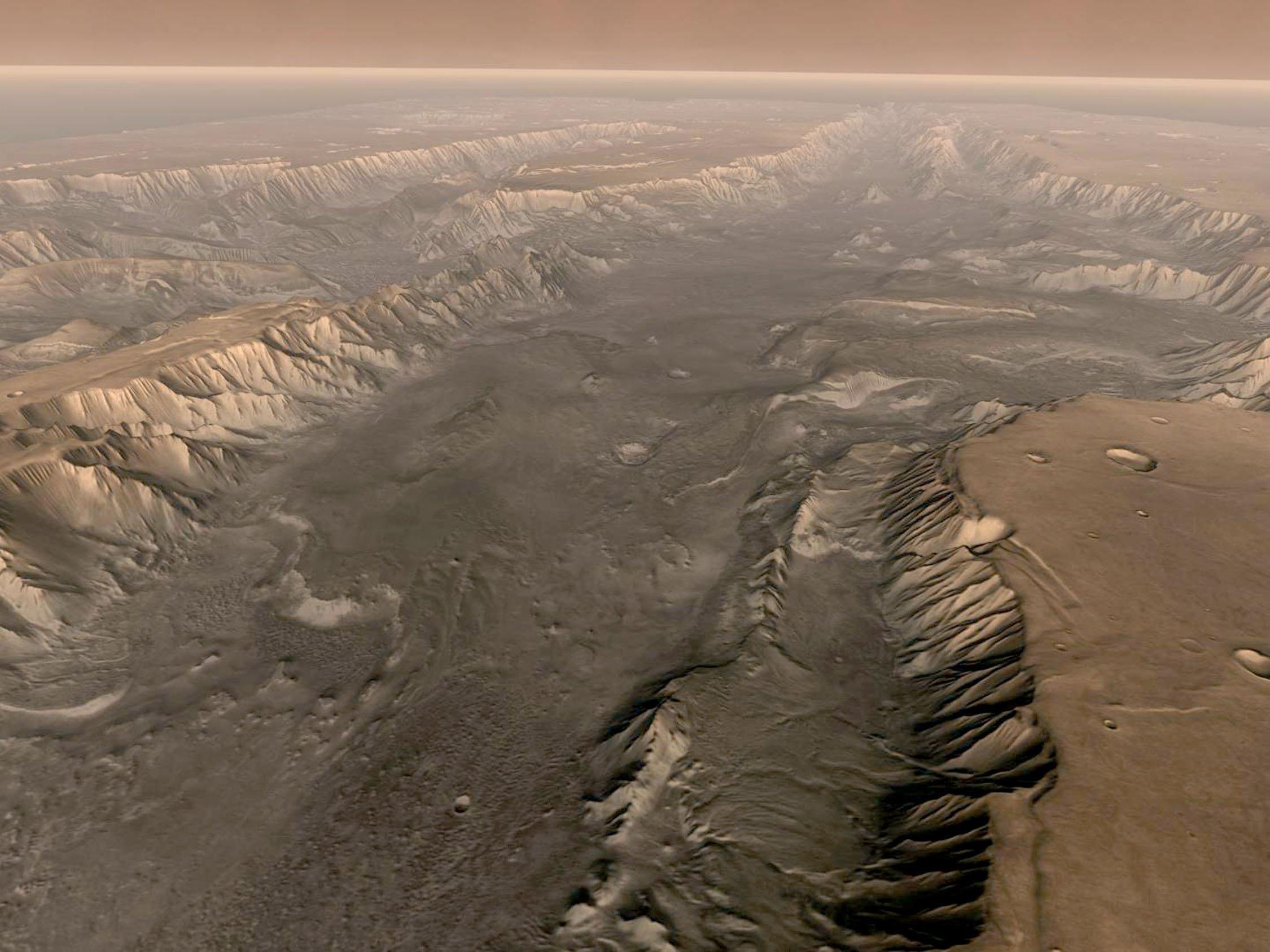Scientists finally establish why there is no life on Mars
'Sponge-like effect' of the Red Planet's rocks 'caused the planetary surface to dry and become inhospitable', making alien life unlikely

Your support helps us to tell the story
From reproductive rights to climate change to Big Tech, The Independent is on the ground when the story is developing. Whether it's investigating the financials of Elon Musk's pro-Trump PAC or producing our latest documentary, 'The A Word', which shines a light on the American women fighting for reproductive rights, we know how important it is to parse out the facts from the messaging.
At such a critical moment in US history, we need reporters on the ground. Your donation allows us to keep sending journalists to speak to both sides of the story.
The Independent is trusted by Americans across the entire political spectrum. And unlike many other quality news outlets, we choose not to lock Americans out of our reporting and analysis with paywalls. We believe quality journalism should be available to everyone, paid for by those who can afford it.
Your support makes all the difference.Mars was made uninhabitable when its surface water was absorbed into the planet’s crust, Oxford scientists have concluded.
New research led by the university’s department of Earth sciences provides insight into the subtle changes in planetary conditions that dictate whether life is possible.
The Red Planet was covered in water until around three billion years ago, much like Earth. But modern-day Mars is barren and dry, precluding the existence of Martians anywhere other than in science fiction.
Scientists have long pondered what happened to the water on Mars, with previous research suggesting some of the planet’s water was sucked into space following the collapse of its magnetic field.
However, a new study led by researchers at the University of Oxford suggests the water is still there, locked into the planet’s surface due to chemical reactions with its rocky crust.
“On Mars, water reacting with the freshly erupted lavas that form its basaltic crust resulted in a sponge-like effect,” said Dr Jon Wade, who led the study, published in the journal Nature.
“This water-rock reaction changed the rock mineralogy and caused the planetary surface to dry and become inhospitable to life,” he said.
Small variations between Earth and other planets in the solar system, such as Mars, set the stage for life to emerge on our planet and not elsewhere.
“The biggest difference being that Mars has more iron in its mantle rocks, as the planet formed under marginally more oxidising conditions,” said Dr Wade.
The scientists found that rocks on Mars were capable of holding about 25 per cent more water than those found on Earth, and that these rocks transport water into the planet’s interior.
There has been longstanding interest in the potential for Mars to sustain life, with a specific focus on its water content.
Past studies have found unusual structures, suggesting tiny organisms may have once lived on the planet’s surface, perhaps in the hot springs and geysers that used to exist there.
Professor Jim McElwaine, a researcher at Durham University who has looked at potential water sources on Mars but was not involved with the study, pointed out that while Mars does not possess water as Earth does, even today it is not completely dry.
“We know there was lots of water on Mars in the past, billions of years ago,” he said. “But we also know there’s lots of water there now – in ice.”
Professor McElwaine said that while Martian rocks could absorb water, without this phenomenon the planet would likely still be devoid of Earth-like oceans, owing to the different atmospheric conditions found there.
“The water would probably have just ended up in ice, or ended up in space,” he said.
Nevertheless, Dr Wade said it was important to explore the role of rock chemistry in sustaining water and altering the environment on other planets.
“To build on this work we want to test the effects of other sensitivities across the planets – very little is known about Venus for example,” he said.
Small chemical changes in a planet’s composition could have a significant effect on its capacity to sustain life.
“These effects and their implications for other planets have not really been explored,” said Dr Wade.
Join our commenting forum
Join thought-provoking conversations, follow other Independent readers and see their replies
Comments